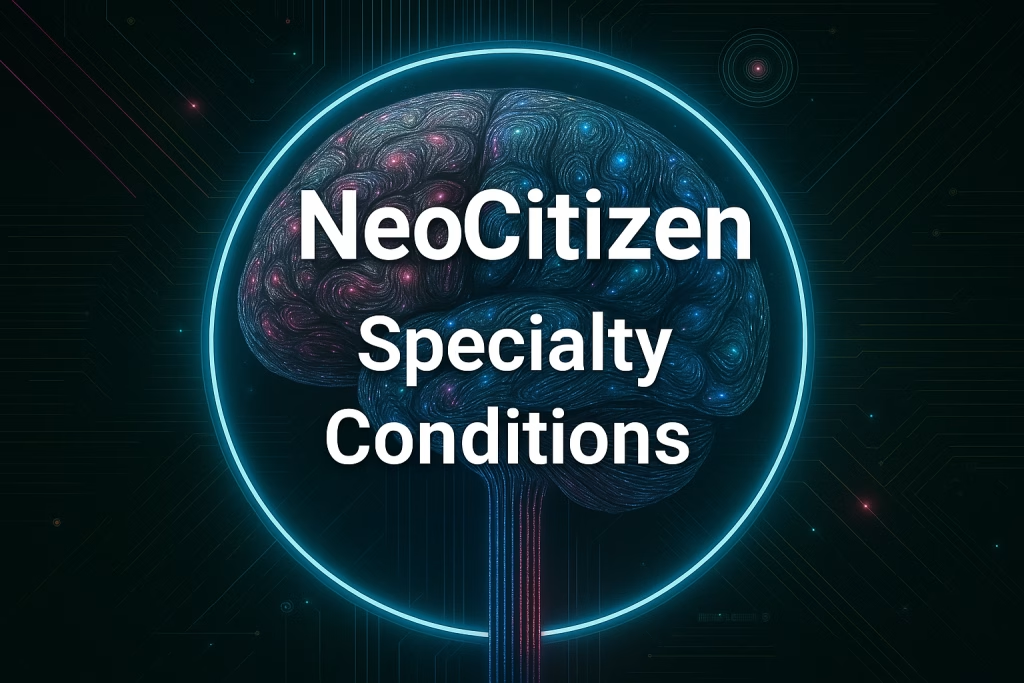
I. Introduction
Alpha-1 Antitrypsin Deficiency (AATD) is a rare but serious genetic disorder that affects the lungs, liver, and sometimes the skin. It happens when the body does not produce enough of a protein called alpha-1 antitrypsin (AAT), which helps protect your tissues from damage caused by inflammation. Without enough AAT, people are at a much higher risk of developing lung diseases like emphysema and liver conditions like cirrhosis — even if they have never smoked. 🫁💚
Many people living with AATD are unaware they have it until they experience breathing problems, repeated lung infections, or unexplained liver issues. It is often misdiagnosed as asthma, COPD, or other common conditions, leading to delays in proper treatment. That’s why awareness, early diagnosis, and proactive care are so important.
In this comprehensive guide, you’ll learn:
- What Alpha-1 Antitrypsin Deficiency is and how it affects the body 🧬
- Common signs and symptoms to watch for 🚨
- How doctors diagnose this genetic condition 🩺
- Current advanced treatments and specialty therapies like ARALAST NP, GLASSIA, and ZEMAIRA 🧪
- Lifestyle tips to help you live a healthier, fuller life 🌟
- Emerging research and future hopes for a cure 🔬
Whether you are newly diagnosed, supporting a loved one, or simply want to learn more, this guide is designed to be easy to understand and empowering. Let’s dive in and take control of your health journey!
II. Understanding Alpha-1 Antitrypsin Deficiency
Alpha-1 Antitrypsin Deficiency (AATD) is a genetic condition, which means it’s passed down from parents to their children. People with AATD either produce very low levels of alpha-1 antitrypsin (AAT) or produce a version of the protein that doesn’t work properly. 🧬
Alpha-1 antitrypsin is made in the liver and plays a protective role, especially in the lungs. Its main job is to control inflammation and prevent damage to healthy tissue when the body fights infections or irritants. Without enough functional AAT, the lungs can become damaged over time, leading to serious conditions like:
- Chronic Obstructive Pulmonary Disease (COPD)
- Emphysema
- Chronic bronchitis
The liver can also be affected because the abnormal AAT protein can build up inside liver cells, causing scarring, cirrhosis, or even liver failure. In rare cases, AATD may also cause panniculitis, a skin condition that results in painful lumps under the skin.
It’s important to remember that AATD is often underdiagnosed or misdiagnosed because its symptoms can mimic more common lung and liver diseases. Knowing about AATD and getting tested if you have symptoms — or a family history of lung or liver problems — can lead to earlier treatment and better outcomes. 🌟
III. Causes and Risk Factors
Alpha-1 Antitrypsin Deficiency (AATD) is caused by mutations in the SERPINA1 gene. This gene provides instructions for making the alpha-1 antitrypsin (AAT) protein. When the gene has mutations, the body either makes too little AAT or produces a faulty version that can’t protect the lungs and liver properly. 🧬
You inherit two copies of the SERPINA1 gene — one from each parent. Your risk depends on what versions (called alleles) you inherit:
- MM (normal): Normal AAT levels — no deficiency
- MZ (carrier): Slightly reduced AAT levels — may have mild risk
- ZZ (severe deficiency): Very low AAT levels — highest risk for lung and liver disease
- SZ (moderate deficiency): Increased risk, especially with environmental exposures
Most people with severe symptoms have the ZZ genotype. However, carriers (MZ) can still develop lung or liver problems, especially if they smoke or have other health issues.
Main Risk Factors for Developing Symptoms
- Family history of Alpha-1 Antitrypsin Deficiency
- Smoking (including secondhand smoke exposure) 🚬
- Environmental exposures to dust, fumes, and air pollution 🌫️
- Liver infections or heavy alcohol use 🍷
- Having certain genotypes like ZZ or SZ
Understanding your genetic risk can help you take preventive steps early — even before major symptoms appear. 💪
IV. Common Symptoms of Alpha-1 Antitrypsin Deficiency
The symptoms of Alpha-1 Antitrypsin Deficiency (AATD) can vary widely from person to person. Some people may not notice any signs until they are adults, while others may experience serious problems in childhood or early adulthood. 🧬
AATD mainly affects the lungs and liver, and in rare cases, the skin. Here’s what to watch for:
Lung-Related Symptoms 🫁
- Shortness of breath — especially during exercise or daily activities
- Chronic cough — with or without mucus
- Wheezing — similar to asthma
- Frequent respiratory infections — such as bronchitis or pneumonia
- Fatigue — feeling unusually tired
- Reduced ability to exercise
Many people are first diagnosed with COPD or emphysema before they discover they have AATD.
Liver-Related Symptoms 🍃
- Yellowing of the skin or eyes (jaundice)
- Swelling in the abdomen (ascites)
- Unexplained liver damage or cirrhosis
- Fatigue or weakness
- Abnormal liver tests without an obvious cause
Liver disease may appear during infancy, childhood, or adulthood, depending on the severity of the deficiency.
Rare Skin Symptoms
- Panniculitis — painful lumps under the skin caused by inflammation
If you or a family member experiences these symptoms — especially if there’s no clear explanation — it’s important to ask a doctor about testing for Alpha-1 Antitrypsin Deficiency. Early diagnosis makes a huge difference! 🌟
V. How Alpha-1 Antitrypsin Deficiency is Diagnosed
Diagnosing Alpha-1 Antitrypsin Deficiency (AATD) is important because early treatment can help slow the progression of lung and liver damage. Unfortunately, many people go undiagnosed for years because symptoms often look like common illnesses such as asthma, COPD, or viral hepatitis. 🧬
If a doctor suspects AATD based on symptoms, family history, or unusual test results, several steps can be taken to confirm the diagnosis:
1. Blood Tests 🩸
- Alpha-1 Antitrypsin Level Test: Measures the amount of AAT protein in your blood. Low levels can be a sign of deficiency.
- Phenotyping: Identifies the type of AAT protein present.
- Genotyping or DNA Testing: Checks for mutations in the SERPINA1 gene to determine your genetic type (such as ZZ, SZ, or MZ).
2. Lung Function Tests 🫁
- Spirometry: Measures how well you breathe and can detect conditions like COPD or emphysema caused by AATD.
- Chest X-ray or CT Scan: Helps doctors see signs of lung damage, such as enlarged air spaces or scarring.
3. Liver Tests 🍃
- Liver Function Blood Tests: Check for elevated liver enzymes, which could signal liver damage.
- Ultrasound or Elastography: Imaging tests that can spot liver stiffness or scarring.
- Liver Biopsy (in special cases): A small sample of liver tissue is examined to assess the amount of damage.
4. Family Screening 👨👩👧👦
Because AATD is genetic, doctors often recommend testing immediate family members once someone is diagnosed. Early detection can help relatives take preventive steps even if they don’t have symptoms yet.
✅ Key Tip: If you have unexplained breathing problems, liver issues, or a family history of lung/liver disease, ask about AATD testing!
VI. Advanced and Specialty Treatment Options for Alpha-1 Antitrypsin Deficiency
While there is no cure yet for Alpha-1 Antitrypsin Deficiency (AATD), there are many advanced and specialty treatments available that can help slow the progression of lung and liver disease, relieve symptoms, and improve quality of life. 🌟
Management usually focuses on protecting the lungs, supporting the liver, and replacing the missing AAT protein when necessary. Here’s how it’s done:
A. Medical Management
- Augmentation Therapy: This is the cornerstone treatment for people with lung disease caused by AATD. It involves regular infusions of purified AAT protein from human plasma to raise the levels of AAT in the blood and lungs.
- Bronchodilators and Inhaled Corticosteroids: Help open airways and reduce lung inflammation.
- Antibiotics: Quickly treat lung infections to prevent further lung damage.
- Oxygen Therapy: Helps improve breathing in people with advanced lung disease.
- Liver Disease Management: Focuses on monitoring liver function, avoiding alcohol, and treating complications early.
B. Specialty Treatments
Several specialty medications are specifically approved for augmentation therapy:
ARALAST NP
- What It Is: A purified alpha-1 protein therapy made from human plasma.
- How It Works: Increases AAT levels in the blood to protect lung tissue.
- Administration: Intravenous (IV) infusion usually once a week.
- Key Benefits: Reduces the progression of emphysema linked to AATD.
- Possible Side Effects: Headache, dizziness, mild fever, infusion reactions.
GLASSIA
- What It Is: The first liquid form of alpha-1 protein for intravenous use.
- How It Works: Boosts AAT levels to help protect against lung damage.
- Administration: Ready-to-use IV solution, making it faster to prepare.
- Key Benefits: No need for reconstitution; convenient for clinics and patients.
- Possible Side Effects: Fatigue, nausea, slight allergic reactions.
ZEMAIRA
- What It Is: Another human plasma-derived alpha-1 protein treatment.
- How It Works: Helps maintain protective AAT levels to slow lung disease progression.
- Administration: IV infusion, typically administered once a week.
- Key Benefits: Highly purified formulation; fewer infusion-related issues.
- Possible Side Effects: Rash, back pain, mild infusion site reactions.
🧬 These specialty therapies are best suited for individuals with severe AATD-related lung disease and normal to mild liver disease. They do not cure AATD but significantly slow lung decline and improve life quality.
C. New and Emerging Therapies
Exciting research is ongoing to find more effective treatments and potential cures:
- Gene Therapy: Researchers are exploring ways to replace or repair the faulty SERPINA1 gene directly.
- mRNA Therapy: Similar to the technology used in COVID-19 vaccines, mRNA therapy could instruct the body to produce functional AAT protein.
- Clinical Trials: Investigating new medications, inhaled versions of augmentation therapy, and liver-targeted treatments.
The future is bright with these promising innovations! 🔬🌟
VII. Lifestyle Management and Prevention Tips
Living with Alpha-1 Antitrypsin Deficiency (AATD) means taking daily steps to protect your lungs and liver. Good lifestyle habits can slow the progression of the disease, prevent complications, and help you feel your best every day. 🌞💪
Here are some essential tips:
Protect Your Lungs 🫁
- Quit smoking (if you smoke) — this is the single most important step you can take! 🚭
- Avoid secondhand smoke, air pollution, and dust whenever possible.
- Wear a mask when working with chemicals, fumes, or in dusty environments.
- Get regular vaccines to prevent respiratory infections, including the flu shot, COVID-19 vaccine, and pneumonia vaccine.
- Treat lung infections early with antibiotics as prescribed.
Support Your Liver Health 🍃
- Limit or avoid alcohol completely to reduce liver strain. 🍷🚫
- Maintain a healthy weight through balanced eating and regular exercise.
- Eat a liver-friendly diet — low in fat, high in fruits, vegetables, and whole grains.
- Avoid unnecessary medications that can damage the liver (always consult your doctor).
Stay Active and Strong 🏃♂️
- Exercise regularly with activities that improve lung capacity, like walking, swimming, or cycling.
- Join a pulmonary rehabilitation program if recommended by your doctor.
- Practice breathing exercises to strengthen your respiratory muscles.
Emotional and Mental Health Support ❤️
- Join Alpha-1 support groups to connect with others who understand what you’re going through.
- Talk to a counselor or therapist if you feel overwhelmed, anxious, or depressed.
- Stay informed and empowered by learning about your condition and treatment options.
✅ Key Tip: A healthy lifestyle doesn’t just make you feel better — it also helps maximize the benefits of medical treatments and protects your body for the long term.
VIII. Coping with Alpha-1 Antitrypsin Deficiency
Being diagnosed with Alpha-1 Antitrypsin Deficiency (AATD) can feel overwhelming at first. It’s normal to experience a mix of emotions — fear, confusion, frustration, and even sadness. 💬❤️
But the good news is that with the right support, you can still live a full, active, and meaningful life!
Here are ways to help you cope and thrive:
Build a Strong Support System 👨👩👧👦
- Lean on family and friends for emotional support.
- Join Alpha-1 support groups, either online or in your local community, to share experiences and advice.
- Talk openly with your healthcare team — don’t be afraid to ask questions about your condition, treatment options, or future care plans.
Focus on What You Can Control 🎯
- Stay proactive with your treatments and follow your doctor’s advice closely.
- Make healthy lifestyle choices that protect your lungs and liver.
- Set realistic goals and celebrate small victories, like completing a daily walk or sticking to a healthy meal plan.
Manage Stress and Mental Health 🧠
- Practice relaxation techniques like meditation, deep breathing, or yoga.
- Consider seeing a therapist or counselor if you’re struggling with anxiety, depression, or chronic stress.
- Keep a health journal to track symptoms, emotions, and treatment progress.
Stay Informed and Stay Hopeful 📚🌟
- Keep up with new research and emerging therapies for AATD.
- Stay optimistic — advances in medical science are creating better treatments and real hope for future cures.
✅ Remember: You are not alone. With education, support, and self-care, you can navigate AATD successfully and continue to enjoy life’s precious moments. 🌸
IX. When to See a Specialist
Because Alpha-1 Antitrypsin Deficiency (AATD) can affect both the lungs and the liver, having the right specialists on your healthcare team is crucial for getting the best care. 🩺🌟
Seeing a specialist early — even before major symptoms develop — can help you protect your health and plan the right treatments.
Here’s when and why you should see a specialist:
See a Pulmonologist if You Experience: 🫁
- Frequent coughing, wheezing, or shortness of breath
- Recurrent lung infections, bronchitis, or pneumonia
- Difficulty with exercise or unexplained fatigue
- Signs of emphysema or COPD diagnosed at a young age (before 45)
A pulmonologist can perform lung function tests, prescribe breathing treatments, and recommend therapies like augmentation therapy to slow lung damage.
See a Hepatologist if You Notice: 🍃
- Yellowing of the skin or eyes (jaundice)
- Swelling in your abdomen or legs
- Unexplained liver problems or abnormal liver tests
- Signs of cirrhosis or advanced liver disease
A hepatologist specializes in diagnosing and managing liver conditions and can monitor your liver health over time to catch problems early.
Coordinated Care Approach 🧩
In many cases, pulmonologists, hepatologists, and genetic counselors work together to manage AATD. A coordinated care team ensures you get the best, most personalized treatment for your lungs, liver, and overall well-being. 💙
✅ Key Tip: Don’t wait until symptoms get worse. If you have been diagnosed with AATD — or if you have a strong family history — seeing a specialist early can make a big difference in protecting your health.
X. Final Thoughts
Alpha-1 Antitrypsin Deficiency (AATD) is a serious genetic condition, but it doesn’t have to control your life. 🌟
With early diagnosis, proper treatment, healthy lifestyle choices, and a strong support system, many people with AATD live long, fulfilling lives.
Here’s a quick recap of what matters most:
- Know your risk: If you or a family member have unexplained lung or liver problems, get tested early. 🧬
- Start treatment early: Specialty therapies like ARALAST NP, GLASSIA, and ZEMAIRA can slow down lung damage and improve quality of life. 🧪
- Protect your lungs and liver: Quit smoking, avoid pollutants, stay active, and follow a liver-friendly diet. 🍃
- Stay connected: Find support through Alpha-1 foundations, groups, and your healthcare team. 💬
- Stay hopeful: Research is advancing every year, bringing new treatments and real hope for future cures. 🔬
✅ Remember: Knowledge is power. The more you understand about Alpha-1 Antitrypsin Deficiency, the more you can take charge of your health journey and live life to the fullest!
You are not alone — and there is always hope. 🌈💙











